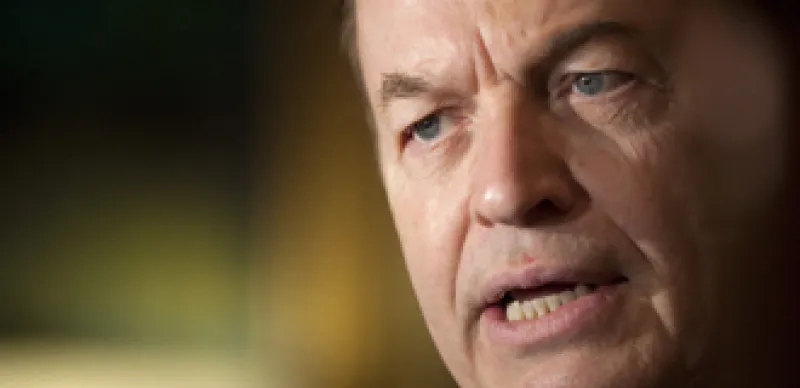Alabama’s Richard Shelby, the ranking Republican on the U.S. Senate Banking Committee, is outspoken in his criticism of the Obama administration’s financial policies. Yet his support for Big Banking is by no means automatic. He opposed George W. Bush’s bank bailout bill, objected to financial deregulation in 1999 — the only Senate Republican to do so — and resisted letting federally insured banks sell insurance. He also was early to fault Fannie Mae and Freddie Mac.
The senator, who has lately focused his wrath on the Dodd-Frank Act, spoke recently with Institutional Investor Senior Contributing Writer Charles Wallace.
Will Dodd-Frank prevent the next banking crisis?
Absolutely not. Dodd-Frank is flawed. It has probably institutionalized to some extent the too-big-to-fail doctrine, and that is not good. Many things in Dodd-Frank are problems, but the fact that it doesn’t really take care of too-big-to-fail sets the stage in a sense for the next crisis. Congress didn’t do the necessary work [and] hold the necessary hearings on the front end in the banking committees of the Senate or the House to write a well-thought-out law. Dodd-Frank abdicates responsibility by Congress to regulators. Regulators have failed in the past, and now they are in the process of bringing out scores of rules and regulations. We are going down the wrong road.
What’s the worst thing about the law?
The biggest flaw is a consumer agency [the Consumer Financial Protection Bureau] that is self-funding, accountable to no one, gets about 10 percent of the Federal Reserve’s operating budget and is not subject to the appropriations process of Congress. That is horrible. I oppose a lot of the policies of Elizabeth Warren [President Obama has put Warren in charge of establishing the consumer agency but has not yet nominated her to head it]. This is a power grab if you have ever seen one in the Congress. She would be the queen or the czar of all. She would be telling financial institutions how to run, what products to offer, everything. We don’t even know the scope of her authority or what she would hope would be her authority.
Can Fannie Mae and Freddie Mac be fixed?
My idea is to get the government out of the mortgage business, not create a hybrid where you socialize risk to the taxpayer and privatize gains to the stockholders. That is what happened. We certainly don’t want to re-create something like the Fannie and Freddie mode, which failed. The administration hasn’t got any real idea where they want to go. We need leadership from the administration. They are supposed to propose things, but I’ve seen no proposals worthy of the name yet.
You oppose the nomination of Nobel Prize–winning MIT economist Peter Diamond to the Fed board because you say it already has too many Keynesians. Didn’t Keynesians save the world in the Great Depression?
What we need are people on the Fed who know something about monetary policy and are mainline economists, not behavioral economists and champions of bailouts. Look at the Fed’s balance sheet. It’s the largest in history, and it’s going to be interesting how they deleverage. A lot of commodities are indicative of future inflation, and once inflation takes off, it’s hard to bring back price stability.
Some say the Republican Party is too close to banks.
We’re not close at all. I’m certainly not close. I don’t own one share of stock in banks. But a good, solid bank that is well capitalized but not overregulated will create jobs. Who is going to create them if we don’t have a fluid banking system?






